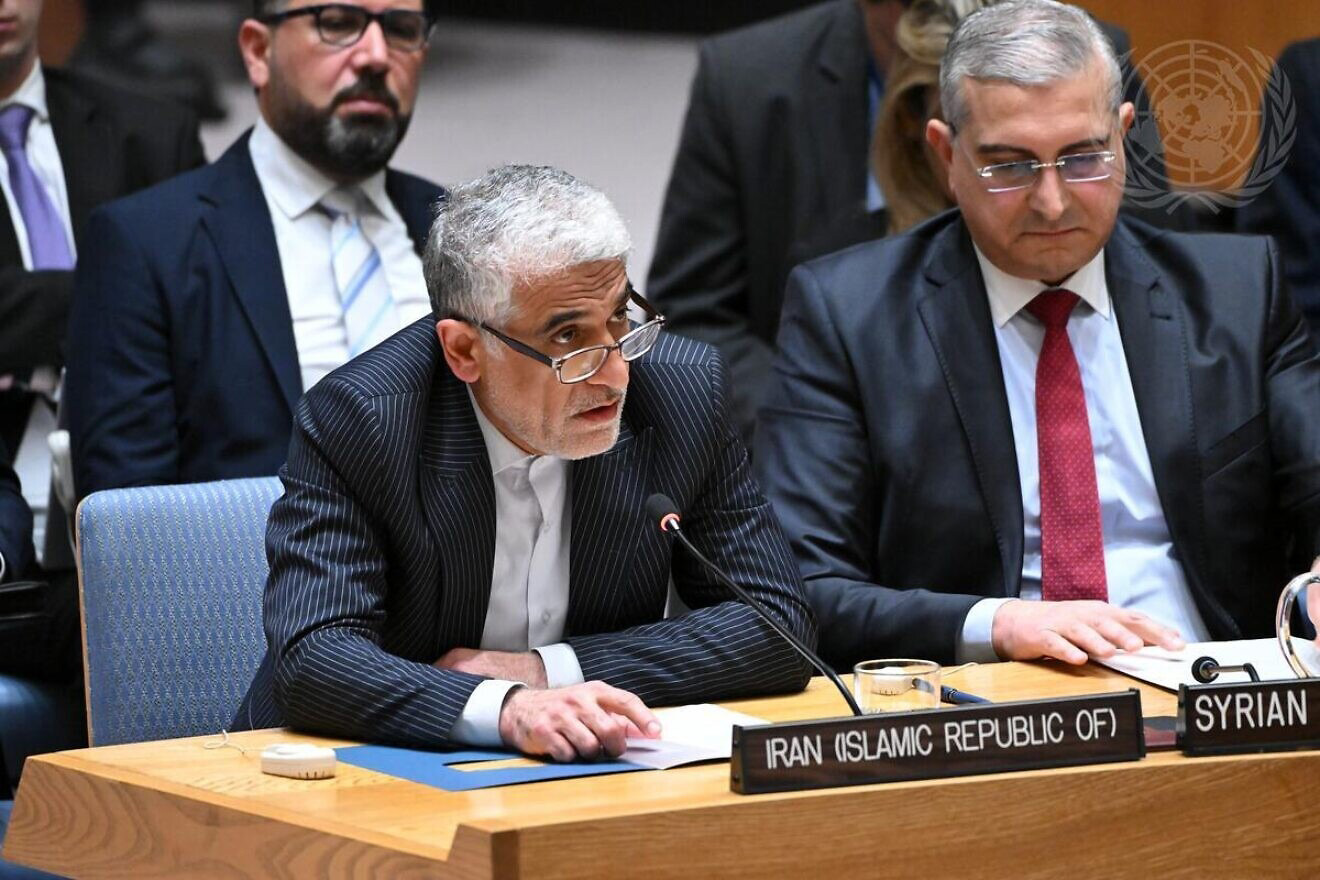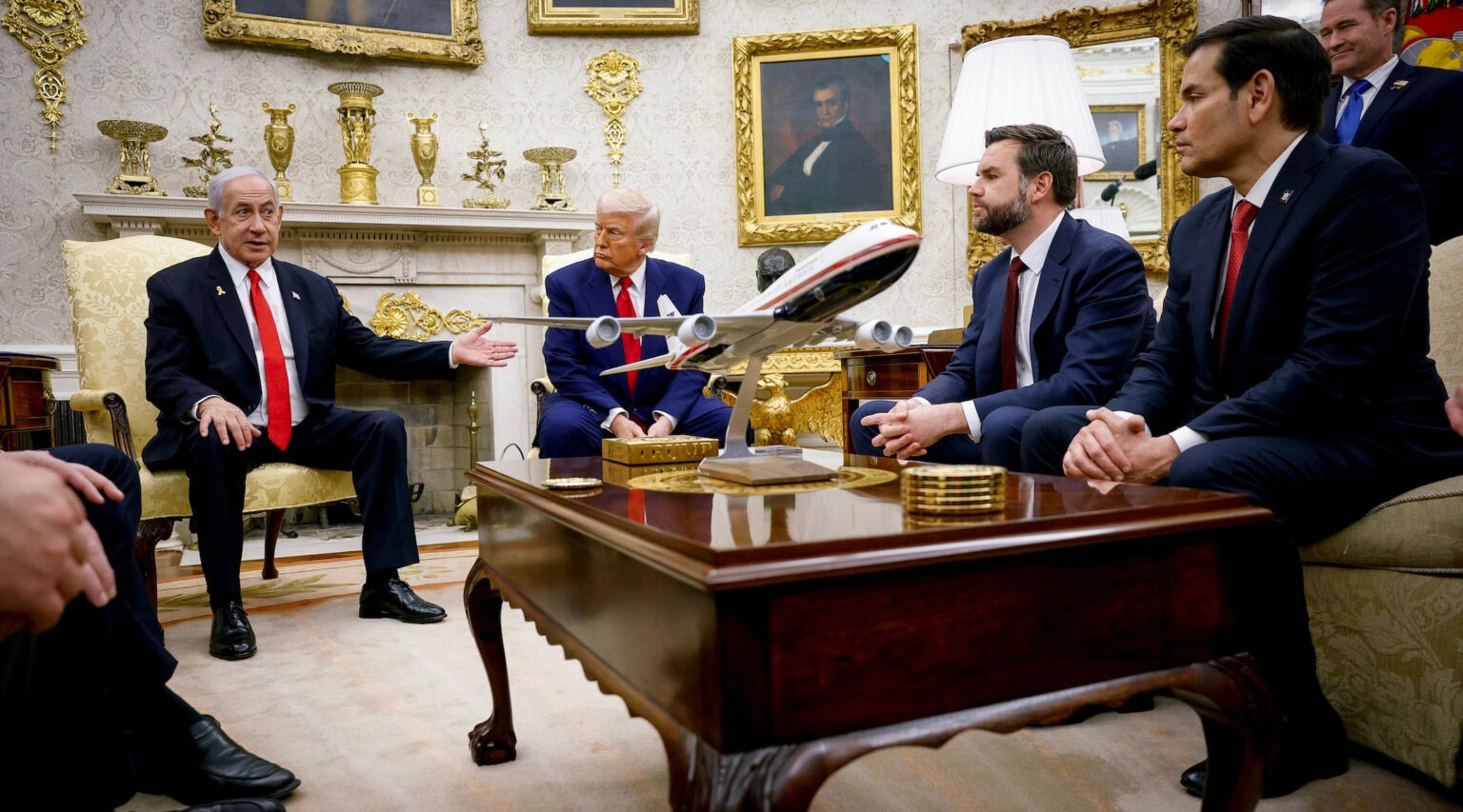Courtesy of JNS. Photo credit: Evan Schneider/U.N. Photo
Amir Saeid Iravani, Iranian ambassador to the United Nations, addresses the U.N. Security Council meeting on the situation in the Middle East (Syria) on Oct. 23, 2024
(JNS) — Countering Iran is likely to be the primary focus of Middle East policy in U.S. President-elect Donald Trump’s forthcoming term, according to a report published Tuesday
The Middle East Forum’s “blueprint” for the Trump administration, titled “Reasserting American Power in the Middle East,” predicts that the incoming administration will, via executive order, reinstate policies of the prior Trump administration, including reimposing travel restrictions that both Trump aides and critics called the “Muslim ban.”
“During the first 100 days, the Trump administration will likely focus on immediate executive actions to implement key policy changes,” according to the Middle East Forum, a think tank founded by Daniel Pipes, the forum’s president.
“The first year presents distinct implementation challenges for the incoming administration, which will prioritize enhanced border controls, expanded deportation programs and strengthened oversight mechanisms across federal agencies,” per the report.
“The Iran pressure campaign will be escalated while simultaneously pursuing closer ties with Saudi Arabia and other Gulf allies, excluding Qatar,” it adds. “Higher education reform will focus on aggressively enforcing transparency requirements and new security protocols.”
The Biden administration took office seeking rapprochement with Iran including a return to the Joint Comprehensive Plan of Action or JCPOA, the formal name for the 2015 Iran nuclear deal.
Iran repeatedly rebuffed those offers, and the Biden administration took a tougher stance against Iran after the Hamas-led terrorist attacks in southern Israel on Oct. 7, 2023, given Iran’s support for Hamas.
The Middle East Forum report envisions the incoming Trump administration restoring the “maximum pressure” campaign against Iran and even pursuing regime change in the Islamic Republic.
“The cornerstone of U.S. Middle East policy must address Iran’s expanding regional influence and its network of proxy forces,” the report states. “Under the Trump administration, this will manifest as an enhanced version of the ‘maximum pressure’ campaign, with the explicit goal of regime change in Tehran.”
“This strategy represents an evolution from previous approaches, acknowledging that containment and negotiation strategies have failed to modify Iranian behavior,” it adds. “Key elements will likely include renewed sanctions, support for internal opposition movements and active disruption of Iran’s regional proxy networks. The administration must also address Iran’s nuclear program, its support for terrorist organizations and its destabilizing influence across Lebanon, Syria, Iraq and Yemen.”
Another question the incoming administration will face includes the U.S. alliance with Qatar, which hosts U.S. Central Command at Al Udeid Air Base, given Qatar’s past support for Islamist groups including Hamas.
Despite the “two-sided game” that Qatar plays with these Islamist groups, the report predicts that Trump is likely to remain close to the Gulf state.
“He met with Qatari leaders at his Florida resort in September 2024,” it notes. “His son-in-law Jared Kushner, who spearheaded Trump’s Middle East policy, and former Treasury Secretary Steve Mnuchin visited the emirate several times post-presidency and have accepted hundreds of millions of dollars from Qatar in investments to their private equity firms.”
The incoming administration also has an opportunity to work with Arab Gulf partners to rebuild Gaza in a way that lessens the centrality of the Palestinian issue to U.S.-Israeli-Arab relations.
“The Gulf Arab states should be asked to serve as part of the solution for post-war Gaza by funding reconstruction and providing security once an Israeli military occupation ends,” the report states. “This engagement could help pave the way to remove the ‘Palestinian Issue’ from its position of primacy regarding progress toward coexistence between Israel and the Gulf States.”





